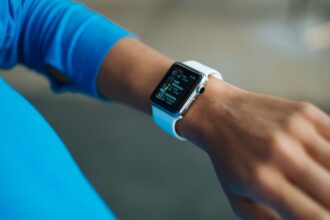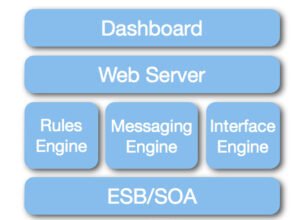Big Data is not only about large volumes of information but also the technologies of its storage and analytical processing methods. This concept has enormous potential in the healthcare industry, changing the usual ways of clinics and hospitals’ functioning. It is also playing a role in things like precision marketing.
The treatment models are constantly evolving, and most of the advances are due to Big Data’s capacities. To leverage Big Data’s power, companies usually look for skilled developers or establish offshore development centers that can deliver unique solutions to improve patient care.
Yet, how exactly can the integration of Big Data relieve both patients and providers in terms of diagnostics and treatment? That’s what we’re planning to discuss in today’s article.
What is the Outlook for Big Data?
In a nutshell, the diagnosis requires a considerable pool of information about the patient, including one’s previous diagnoses and health-related risks. Its analysis leads to new directions of medical science, preventive and personalized. In this way, with the Big Data analysis, a professional can say, for example, whether a specific person is prone to having a mental illness, including depressive elements. A significant part of the doctors’ working routine can be automatized with the preliminary gathering of data and its primary analysis.
Besides, Big Data can address the problems associated with the functioning of the healthcare system. It has a capacity for decreasing the cost of the treatment, predicting epidemic outbreaks, early screening of a handful of diseases, improving the quality of living, and implementing modern treatment methods into practice. It is also associated with the new trends in the patient-doctor relationships in the form of mobile medicine technologies. Nowadays, people have access to the tools allowing them to control most of the physiological parameters, implying not only monitoring but also managing their health states.
Wearable Tech
There are numbers of wireless wearables for measuring different biophysical parameters of the patients. When they are connected to some other data from the patients’ lives, which can be gathered from, say, the smart-weights, it allows informing the doctors about any changes and notify if there is a need in their interference. Moreover, the Big Data technologies’ potential is associated with the development of algorithms that can recognize, analyze, and interpret the signals and images received from the wearables.
Staff Management
There is no doubt that an engaged workforce is the driver of advanced patient care, increased service rates, and declined mistakes. Medical institutions can optimize their HR management processes, like balancing personnel in certain departments, with the usage of Big Data for HR analytics like those provided by Predictive Health Solutions. For example, it often happens that there is a lack or abundance of medical workers in particular departments, so the distribution of skilled employees to the right places at peak times will increase their motivation and dedication. Besides, Big Data enables upgrading policy plans and granting the required level of support to the senior staff.
Moreover, it is essential to support the ongoing development of the staff skills and keep track of employee performance in healthcare. When keeping an eye on the personnel, the institution can identify whether someone needs training or support, which is both about professional knowledge and soft skills.
Another crucial tool is a healthcare dashboard, which, however, focuses on the patients, yet has valuable information for the top-management and, hence, the medical staff. It allows detecting the tendencies and regularities, possible constraints, and evaluating the patients’ experience from visiting the medical institution. When looking at Big Data analysis, hospitals can deal with the situations in a more conscious way and improve staff management and general operations performance.
Big Data and Medical Prognosis
- Predicting the disease development
The electronic medical records information allowed the doctors to establish the connection between the seemingly different illnesses. There was research conducted by Kaiser Permanente that came up with the risk evaluation system enabling to deliver the prognosis about the progression of dementia among the patients with diabetes.
- Identifying genetic markers in oncology
By analyzing the most common types of cancer diseases, the scientists from Cape Town have concluded that each of these types is characterized by specific gene combinations. There are distinct genetic markers that are present in breast, lungs, or brain cancer. The team was capable of coming up with the mentioned results due to having access to Big Data.
- Forecasting the states of health of infants
The Hospital for Sick Children in Toronto has implemented a Project Artemis, allowing the information system to gather and analyze the information about infants in real-time. It can track several indicators of each child’s health status and predict the unstable conditions, enabling doctors to start the disease prevention in time.
- Predicting the risk factors in surgery
There is a so-called QPID analytics engine developed at Massachusetts General Hospital, enabling doctors to receive valuable information about the patients stored in data repositories and EHRs. The system conducts an automatic search of the treatment protocols and presents the results with the predicted risk indicators.
Big Data and Pharmaceutics
- Creating new medications
Big Data is of high importance when it comes to modeling new medications. Some companies already work on developing services for assessing the prospects of developing innovative drugs.
- Gathering patients’ clinical data
Some of the top pharmaceutical manufacturers aim to get access to the patients’ medical data first, outpacing their competitors. They make deals with tech companies specializing in Big Data analysis.
- Improving the quality of clinical testing
Big Data enables to choose the patients from several databases that comply with the preliminary requirements of the clinical testing to a great extent. As mentioned, telemedicine, namely wearable gadgets, allow healthcare professionals to monitor the patients’ health conditions in real-time.
- Identifying the side effects of drugs
Using Big Data allows predicting specific compounds and components’ side effects before embarking on the clinical testing. This method includes different medicines’ characteristics, enabling companies to save a lot of money and time, and prevent accidents when testing the drugs on people.
Summing It Up
Big Data usage allows the medical institutions to decrease the time patients have to spend at the hospitals, hold back the cost increases, and reduce the number of hospital readmissions. With the growth of tasks’ complexity increases the complexity of analytical systems and algorithms, as well as the number of required data. It changes from simple information from medical records and biometric monitoring to genome data. So, Big Data is at its height, and the companies that aim to implement its usage to improve healthcare are engaging top programmers to come up with innovative solutions.









